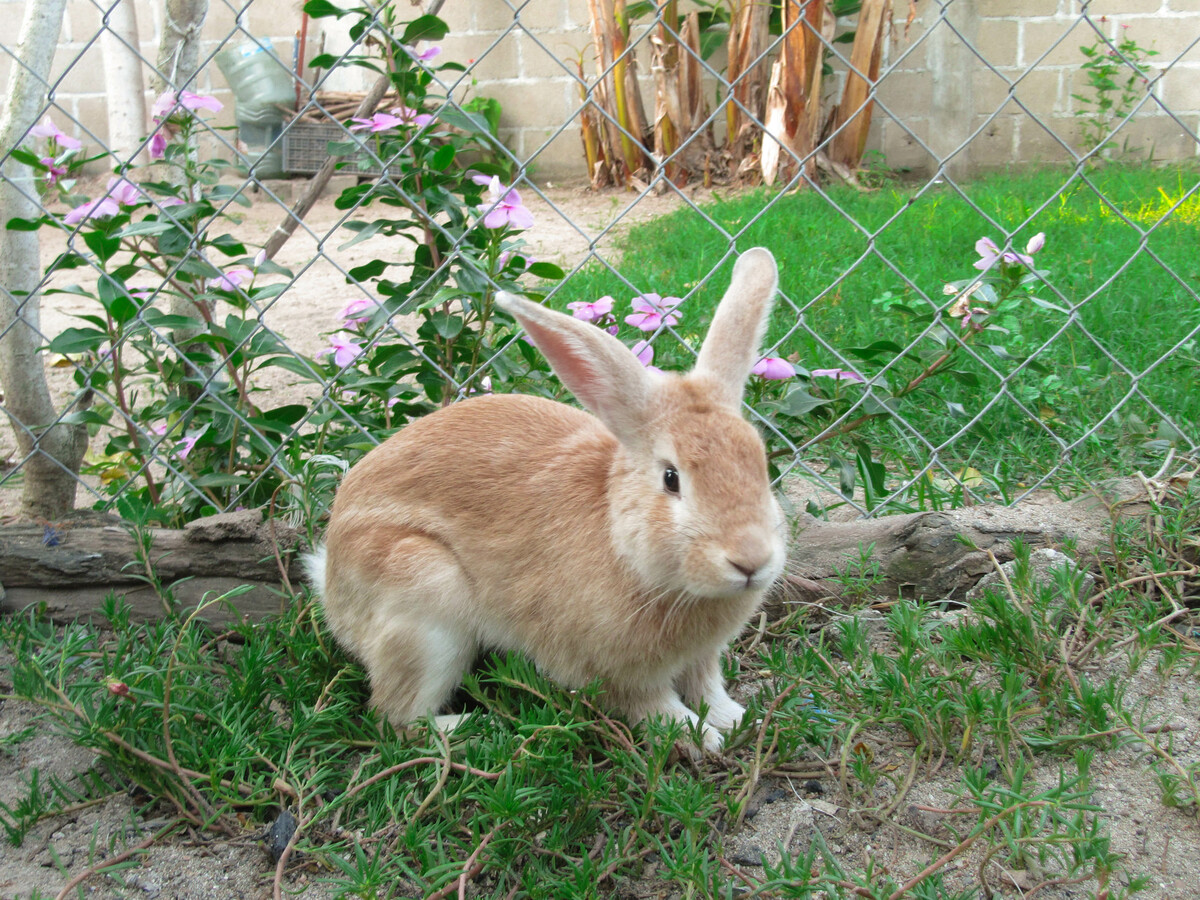You can compost rabbit poop or use it directly on soil as a fertilizer. You can also brew rabbit compost tea by adding rabbit poop into a bucket full of water and leaving it there for at least 3 days; then, sprinkle it on plants and soil.
Rabbit poop is rich in nitrogen, phosphorus, and potassium (NPK), as well as minerals like boron, zinc, manganese, sulfur, copper, cobalt, and calcium.
These minerals are essential for plant growth.
Table of Contents
Benefits Of Using Rabbit Poop As Cold Manure
Another name for rabbit droppings is cold manure. It is a type of organic fertilizer that doesn’t have to undergo a composting process.
As a top dressing, you can add it to trees, garden beds, mulch, roses, vegetables, and house plants. Alternatively, add it to the soil for soil treatment and moisture retention.
Below is a summary of the advantages of using rabbit poop:
- The pellets have a mild odor. The mild odor is not unpleasant, so you can easily use it to mulch roses or other plants.
- The manure is inexpensive. You can readily collect rabbit poops at home if you are already raising rabbits.
- Rabbit manure is one of the easiest to use among other animal poops. You can spread it as a top dressing for the plants, brew rabbit manure tea, or compost it.
- Rabbit pellets are four times more nutritious than animal poo, such as horse or cow manure. They are also twice as rich as chicken manure.
- Use rabbit poop to make rabbit manure tea. The tea quickly penetrates the soil reaching the roots faster to deliver the needed nutrients.
- It provides the soil with the necessary microorganisms, macro, and micronutrients.
- The nitrogen in rabbit poops is essential in generating enzymes, proteins, and amino acids. It also improves the plant’s growth by making it stronger and more resistant to diseases and pests. Plants receiving enough nitrogen have healthy leaves, stems, and roots.
- The phosphorus enables plants to convert solar energy to chemical energy. It is excellent for plant roots because they grow bigger and can withstand stress. When you add phosphorus to the soil, your plants will be brighter green and look healthy even after long periods of drought or cold weather.
- Potassium in the pellets helps the plants to become disease-resistant and increases the quality of their fruits.
Is Rabbit Poop a Good Fertilizer?
Rabbit poops are one of the best fertilizers you can add to your garden. They are highly nutritious, encouraging healthy plant growth in our gardens.
The poop also contains smaller amounts of phosphorus and potassium, which are beneficial to plants. For example, tomatoes require both phosphorus and potassium to grow.
A lack of these essential minerals can lead to stunted growth of plants and plants that do not bear fruits.
Furthermore, adding rabbit manure to a pile of composting materials releases beneficial bacteria and microbes that help break down organic matter into nutrient-rich fertilizers for plants.
The process also creates heat that speeds up the decomposition of other scraps or yard waste.
What Is Rabbit Manure Compost Best For?
Rabbit manure compost is especially good at building up soil fertility levels. It contains a large amount of organic matter that helps keep the soil moist and supple, encouraging plant growth.
When added to the soil, vital minerals find their way into it. The minerals increase the nutrient content of your garden.
Adding rabbit poop to the ground greatly benefits gardens with low nitrogen, phosphorus, and potassium.
How Do You Make Fertilizer From Rabbit Poop?
1. Apply directly as top dressing
One way of making fertilizer from rabbit poop is by applying it directly as a top dressing to the plants. It can also act as mulch for flower beds and vegetable gardens.
Pick rabbit poops from the hutch, dry them in the sun, and add them to your plants and vegetables.
2. Brew rabbit compost tea
Alternatively, you can make fertilizer by brewing rabbit compost tea. Add rabbit poop into your bucket full of water, wait for three days, then sprinkle it on plants and soil to absorb all the nutrients.
3. Try composting
Finally, you can make fertilizer by composting. Rabbit poo will break down quickly and create an excellent compost full of nutrients, microorganisms, and decomposed organic materials.
How Long Does It Take For Rabbit Manure To Decompose?
Rabbit manure comes in different forms. It can be rabbit manure tea, mulch, or compost. They will all decompose differently.
Rabbit manure tea will take 3 to 5 days, and compost will take 3 to 5 months for full decomposition.
How Much Rabbit Manure Should You Use In The Garden?
Approximately 200 to 400 pounds of rabbit droppings per 1000 square feet of soil is appropriate for a more extensive garden. Add a handful of poop in every hole when planting.
Rabbit poop should be added sparingly to soil because of its high nitrogen content. Excess manure can dry plants.
Is Rabbit Compost Manure Good For Worms?
Rabbit compost manure is worms’ best friend. It is an excellent food source for worms and worms such as red wigglers.
However, it is not ideal in its fresh state. The highly soluble nitrogen and salt in the droppings are toxic for earthworms.
To check if it is ready after a week of vermicomposting, put some worms inside and wait for 10 minutes.
The compost is not ready for the worms if the worms are huddled together. Give it another week to compost completely.

